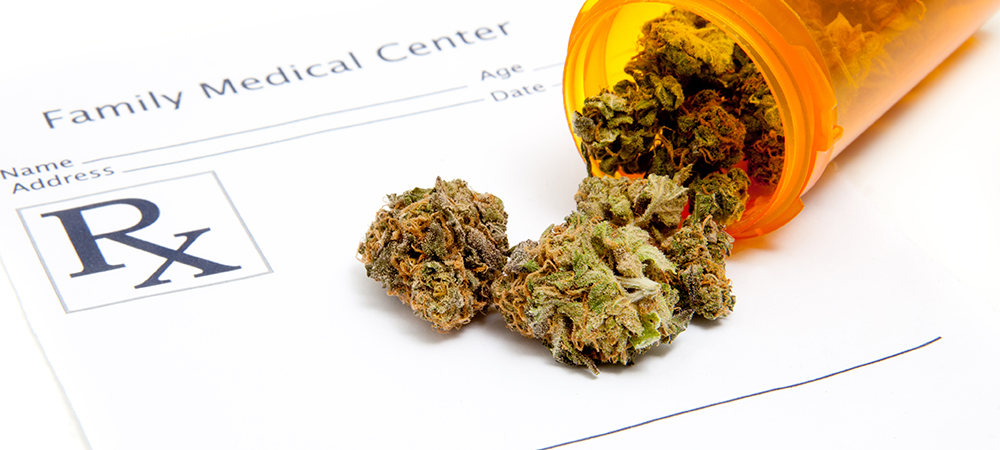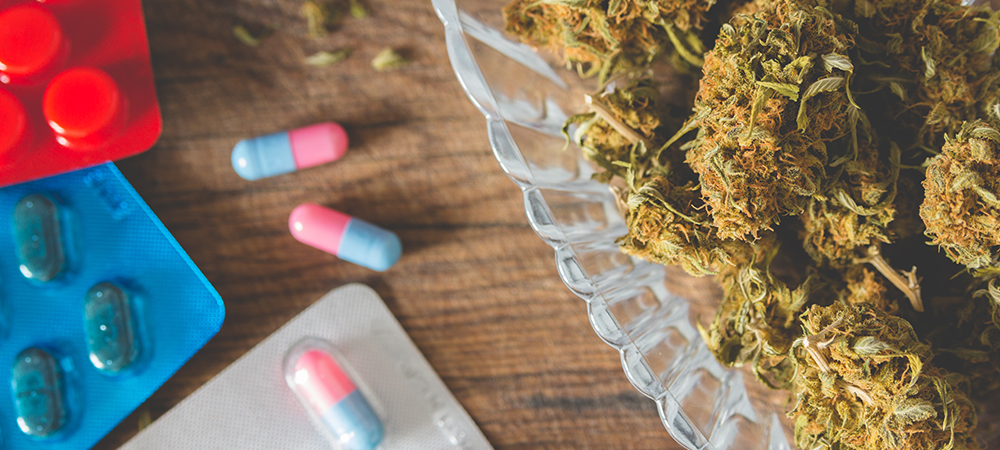30 Aug Georgia and the Medical Marijuana Dilemma
Table of Content
For more than seventy years, the American government has followed the most monumental failure in policy since the disastrous thirteen-year experiment with the prohibition of alcohol. We speak of course, about the United States Government’s catastrophe in its “War on drugs,” specifically in regards to its prohibition of marijuana. Since it’s outlawing in 1937 with the Marijuana Tax Act, countless lives have been ruined and trillions of dollars have been wasted in this futile fight. As of today, over 25 million Americans use Marijuana either recreationally or medicinally every single month and unless some dramatic revelations come out about the severe negative impacts of the drug, this number is not likely to drop in the near future. Despite its widespread use and rapidly shifting ideas about its medicinal use, Marijuana is still considered and enforced as a Schedule 1 Drug by the DEA, which meets three characteristics:
- The Drug or other substance has a high potential for abuse.
- The drug or other substance has no currently accepted medical treatment use in the U.S.
- There is a lack of accepted safety for use of the drug or substance under medical supervision.
Other Schedule 1 drugs are Heroin, Crystal Meth, Methaqualone, Ecstasy and Bath salts… let that resonate for a second.
In 1996, the people of California marked a momentous change in course for the, “War on drugs,” when they legalized medical marijuana with the vote of the people. Since then, 28 other states have followed either legalizing medical or recreational marijuana use for adults. In March, by a vote of 45 to 6, Georgian Senators approved a revised version of Senate Bill 16, sending it to Governor Nathan Deal for his signature. The bill makes six conditions eligible for treatment with a limited form of cannabis oil allowed in Georgia: Alzheimer’s disease, AIDS, autism, Epidermolysis Bullosa, peripheral neuropathy and Tourette’s syndrome. Patients in hospice care also could possess the oil. Despite this small step forward, Georgia finds itself at a crossroads, facing the same question that other states have considered in regard to the statewide legality of medical marijuana. Despite being a regular smoker or not, nowadays it’s hard to deny that the benefits of legalization outweigh the negatives. Hence why the majority of states have rallied behind legalization.

A Brief History on Medical Marijuana
Before we dive into the pros and cons, we would like to first briefly trace the historical roots of human interaction with the Cannabis plant. The first recorded use of hemp in textiles was in 6,000 B.C. China and the first recorded use of cannabis as a medicinal substance was by Emperor Shen Neng, also of China. Despite its widespread uses all over the world throughout the millennia, various cultural aspects of the 20th century created a paradigm shift in the way that the plant was viewed by society. The cause of this was likely twofold: Firstly, pressure from the paper industries that feared competition from the hemp industry. Secondly, the xenophobia associated with “Deviant groups” of Blacks and Mexican immigrants smoking the hemp leaf for recreation. This, in turn, caused a flurry of research which linked the use of marijuana with violence, crime, and other socially deviant behaviors, primarily committed by, “Racially inferior,” or, “Underclass communities.” Further, in order to play up the foreign Mexican immigrant angle, a silent “J” replaced the “H” in “Marihuana.” It was also reported that marijuana could induce otherwise law-abiding young folks to rob, rape, or kill others. Literal, “Reefer madness,” may seem like a ridiculous claim given the prevailing, “Stoner,” archetype of modern day America, but it had real credibility at the time. It’s hard to say it still does.
Arguments For Medical Marijuana in Georgia:
- Medicinal Use
There are at least two active chemicals in Marijuana that researchers think have medicinal applications. Those are Cannabidiol (BCD) – which impacts the brain without any psychotropic effects or a high – and Tetrahydrocannabinol (THC) – which has pain relieving (and other) properties. There is now promising research into the use of marijuana that could impact tens of thousands of children and adults, including treatment for various issues such as:
- Alzheimer’s – THC has shown to slow the formation of amyloid plaques by blocking the enzyme in the brain that makes them. These plaques are what kill brain cells and cause the disease.
- AIDS– Promising for treating wasting syndrome in AIDS patients. Nausea appetite loss, pain, and anxiety are all afflictions that could be mitigated.
- Chron’s Disease– while it doesn’t cure the root issues of Chron’s it effectively combats various symptoms such as pain relief, easing of diarrhea, increase in appetite. THC-like compounds made by the body increase the permeability of the intestines, allowing bacteria in. The plant-derived cannabinoids in marijuana block these body-cannabinoids, preventing this permeability and making the intestinal cells bond together tighter.
- Epilepsy – conventional treatments for Epilepsy fail for 30% of the population. Cannabinoids have been positively shown to control seizures by binding to the brain cells responsible for controlling and regulating relaxation. Further, CBD has been shown to be extremely effective in treating those who suffer from Dravet Syndrome, which causes constant seizures and severe developmental delays. During the research for his documentary, “Weed,” Dr. Sanjay Gupta interviewed the Figi family who treat their 5-year-old daughter, Charlotte with CBD pills daily. According to the family, the drug has decreased her seizures from 300 a week to just once a week.
- Multiple Sclerosis – MS patients deal with painful contractions in their muscles, many of these patients do not respond to other treatments, but for quite a few of these, smoking marijuana alleviated their pain. The THC binds to the receptors in the nerves and muscles to relieve and control spasms.
- A Substitute for Painkillers
We are currently facing an Opioid Epidemic in this country and it’s massively impacting Georgia. Due to legislation and extensive pushes by Big Pharma, “Pill Mill” clinics have handed out painkillers such as Oxycodone, Vicodin and Percocet like they were candy, despite knowing their extremely addictive qualities. In 2015, 33,000 citizens died of overdosing on opioids. That number rose to 50,000 in 2016. Opioids are the number one killer of people under the age of thirty and now take more lives annually than auto accidents. Taking this sobering number a step further, the vast majority of Heroin addicts start with pain pills, get hooked on them and then turn to a cheaper/better high in the form of Heroin. Heroin is responsible for the deaths of 13,000 Americans annually. We’re talking national numbers here, yet they scale in accordance to Georgia’s population.
In economics, one of the best ways to reduce the price or the market share of an object is to have a substitute product. When people have multiple choices, they are more often than not going to choose the one that is best for them and costs the least amount. This increases competition and drives down cost. So in the case of fighting pain, marijuana serves as a substitute for pain pills that is often times, cheaper, more readily available and has absolutely zero fatalities associated with the direct use. Studies have shown in Colorado that Opioid deaths have decreased annually by over 10% since recreational marijuana was introduced to the state. Simply put, fatalities are down because citizens had more options to fight pain and were less likely to choose pain pills which have a higher addiction rate and an unmitigated fatality rate. When bringing Georgia’s opioid problem into the debate, legalizing marijuana could drive down the opioid overdoses that are without a doubt climbing year by year.

- Increase in State Revenue
State and local governments are constantly looking for new ways to fund projects such as infrastructure and education and while much of the increased revenue is due to recreational marijuana, a marked portion of that is due to medical purchase and use. It is estimated that a thriving marijuana industry could generate up to, “$28 billion in tax revenues for federal, state and local governments, including a $7 billion in federal revenue: $5.5 billion from business taxes and $1.5 billion from income and payroll taxes.” Further, a growing marijuana industry would allow entrepreneurs to enter the market and increase jobs and stimulate the economy.
- Impact on Criminal Justice and Law Enforcement
It was estimated by the American Civil Liberties Union that anywhere from 3-6 billion dollars were spent annually enforcing marijuana possession laws and that black citizens were nearly four times as likely to be arrested for possession, despite both races using the drug at a roughly equal rate. That billion dollar figure does not include the cost of jailing those people arrested. With the legalization of medical Marijuana Law Enforcement would have more money and time to pursue criminals committing other crimes, especially ones that are of a violent nature and actively harmful to citizens of the state of Georgia. Some argue that it would also create wiggle room in the criminal justice system, which allows judges and prosecutors to focus more on violent crimes, while crowded prisons are freed of space
It is important to note that not only does the legalization of Marijuana increase state revenue, both directly by sales/taxes and indirectly through saving on law enforcement, but it also hamstrings organized crime, especially the Cartels (which are currently striving to mass-produce heroin and meet Georgia’s market demand). The spike in organized crime in the early 20th century was directly related to the Prohibition of Alcohol. The marijuana trade is no different. The largest opponents to legalization are the Pharma industry and drug dealers themselves because a lack of competition results in absurdly high prices. Legalization would open competition and lower prices, so drug cartels would lose some or even all of their business. Advocates also contend that making the substance less profitable for criminals will result to a decrease in violence associated with the trade due to the decrease in “Street Justice,” because the government would be able to litigate disputes between individuals, where as now they are often settled personally, which leads to vigilantism and cycles of retaliatory violence. This would save lives while further taking the weight off from law enforcement. Elaborating this even further, legalization at a state level allows for regulation and safety controls to be put in place. Although it is a rarity for marijuana to be “cut” with another substance, this phenomenon has been reported at times. Government regulation would insure that its citizens are in fact buying a relatively safe product.
Arguments Against Medical Marijuana in Georgia
- The Addictive Nature of Marijuana
Although it is not as physically addictive as other harder drugs, such as cocaine and heroin, in many cases, long-term marijuana use can potentially lead to a psychological addiction. Many people turn to it as an emotional crutch that stunts their ability to cope with stressful situations without the drug. That said, the addictive quality in comparison to other schedule 1 drugs is laughable and the withdrawal symptoms are often times minor, ranging from increased anxiety to irritability.
- Decline in Health
Lung Health – While tobacco and cigarettes are generally to blame for lunch cancer, marijuana is estimated to have levels of carcinogens that are almost double of that from tobacco smoke. This effect is increased in that pot smokers tend to inhale more deeply than cigarette smokers, which increases the amount of time the lungs are exposed to cancer causing chemicals.
Heart Health – Marijuana use can raise the heart rate from 20 to 100 percent for up to three hours after it has been smoked, increasing the risk of getting other health problems, such as arrhythmia, heart palpitations, and heart attack. The effects on the cardiovascular system can make smoking weed a high-risk activity for seniors or for people with cardiac conditions.
Mental Health – One of the most negative aspects of marijuana is its negative effect on memory. Certain studies have shown that blood vessels in the brain of a marijuana smoker experience restricted flow, which can continue even after a month of abstinence.
- A Gateway Drug
A common argument for those against Marijuana is that it serves as a gateway drug that potentially introduces users to more serious illegal substances. But arguments have made the same for Alcohol and Tobacco, with the vast majority of teens starting with these two (much more deadly) substances and then moving on from there. While this is not always accurate—as often alcohol begets harder substances since the cocaine high mirrors alcohol more than marijuana—it’s certainly a cause for concern.
- Stoned Driving
An interesting concern put forth by detractors is the likelihood of an increase on stoned drives combined with the difficulty in law enforcement testing whether or not someone was high while driving. While not as dangerous as driving drunk, driving high does impact a driver’s reaction times, spatial sense and awareness. A recent study found that there was a 3% increase in accident insurance claims related to marijuana. That said, there is currently no viable to test for whether or not someone is currently under the influence of marijuana. The vast majority of tests simply show a pass or fail to indicate that the substance was their system within a marked time period, often 12+ hours, which is obviously not an effective way of measuring this. Imagine if a BAC test didn’t actually measure the blood alcohol content and rather just whether or not someone drank in a wide period of time.
Conclusion
Despite a century of negative propaganda, the pendulum has begun to swing the other way. Georgians and their legislators need to seriously weigh the pros and cons of the legalization of medicinal marijuana. By limiting Georgian’s accessibility to use marijuana as a medicinal substitute, most would say we are intruding on their personal freedom. Even if the drug is shown to have harmful effects, it is still commonly thought that it’s the right of every individual to decide what harms him or not, as seen with Alcohol and Tobacco, which unlike Marijuana, actually are directly linked to thousands of deaths annually. The economic and social benefits to the people of Georgia by legalizing medicinal Marijuana far outweigh the negative ramifications. The American people have spoken in thirty-nine of fifty states, now, it seems that it’s simply a matter of time.



 678-771-6411
678-771-6411


No Comments